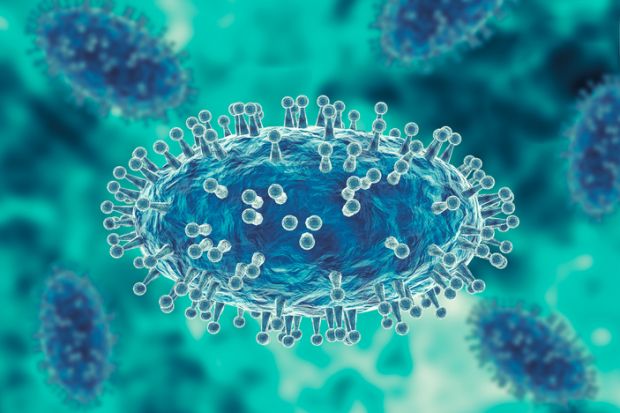US universities are entering the autumn semester with limited medical tools against an expected spread of monkeypox, relying instead on student awareness and caution as their best option for avoiding major outbreaks.
Monkeypox, a viral disease spread by close human contact, which is prolonged and painful but generally not fatal, moved earlier this year beyond its endemic range in Africa. There are now more than 30,000 cases worldwide, with about a third of them in the US alone.
The US, however, has only about 1.1 million doses of the main monkeypox vaccine, leaving the government to ration and split the supply among the most vulnerable while it hurries to procure more.
The reopening of colleges for the new academic year is widely awaited as a potential turning point, given that many common campus activities – from sports to sex – are understood to fuel the disease’s spread.
Already at least five US colleges have reported cases just through their limited summer operations. That has left some administrators and students fretting the possibility of much more extensive spread once full campus operations resume.
Following Covid lockdowns, the rise of monkeypox is likely to heighten “feelings of anxiousness and uncertainty” among students, said Kenneth Han, the chief medical officer at the University of California, Riverside, in a message to the campus community.
At the University of Texas at San Antonio, administrators led by president Taylor Eighmy have promised an expanded programme of campus disinfection.
The American College Health Association has been relaying general medical advice on monkeypox from the federal government to its membership – 8,500 campus health professionals at 700 institutions – but is still in the process of preparing advice that’s specific to student life. The association is planning a series of webinars beginning this month on monkeypox strategies, a spokeswoman said.
The overall situation has some experts frustrated. Julie Swann, a professor of industrial and systems engineering at North Carolina State University with expertise in public health, told her campus community that she was disappointed with the government’s response so far. “Although,” she added, “I acknowledge that a full-scale response is difficult when there is already a first pandemic going on.”
Her colleague Matt Koci, a virologist, warned that one of the more damaging effects of monkeypox may turn out to be the renewed stigmatisation of the LGBTQ community since – as with the Aids outbreak in the 1980s – many initial cases have been associated with gay men.
Raymond Crossman, the president of Adler University and co-founder of LGBTQ Presidents in Higher Education, told Times Higher Education that he shares the concern that monkeypox could suddenly spread rapidly in some US residential colleges. “And we’re not mobilising in higher ed for that threat,” he warned.
In the end, however, monkeypox probably will cause limited harm on campuses, said Ali Khan, professor of epidemiology at the University of Nebraska Medical Center.
For colleges, he said, preparedness should consist of “zero threshold for testing rash illnesses and a great STD clinic”.
POSTSCRIPT:
Print headline: Monkeypox spread alarms US campuses
Register to continue
Why register?
- Registration is free and only takes a moment
- Once registered, you can read 3 articles a month
- Sign up for our newsletter
Subscribe
Or subscribe for unlimited access to:
- Unlimited access to news, views, insights & reviews
- Digital editions
- Digital access to THE’s university and college rankings analysis
Already registered or a current subscriber? Login








